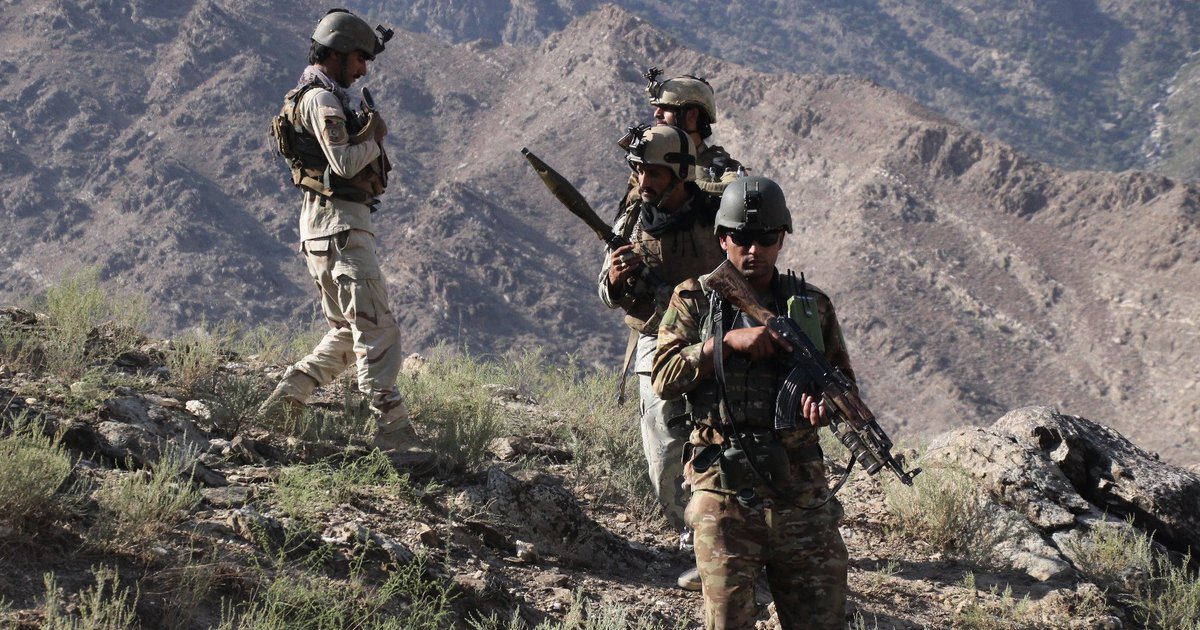Joe Biden’s team have been finding Trump’s legacies littered right across government, and nowhere more so than in the Pentagon. The new president moved fast with numerous presidential directives, but he also faces the problem of vast numbers of appointments made in the last few months of Trump’s control, even after the outgoing president had lost the election.
In the Pentagon, for example, several hundred appointments were made to a wide range of advisory boards covering defence policy, health, science and business. They were made even as late as November and December by Trump’s ultra-loyal acting secretary of defense, Christopher Miller. The appointees included retired brigadier and former Fox News commentator Anthony Tata, and even Trump’s former campaign manager, Corey Lewandowski.
Just like the presidential directives, though, Biden has acted quickly to change this. His new secretary of defense, Lloyd Austin, has announced a broad review of the advisory boards and ordered hundreds of board members to resign their posts by 16 February at the latest, including several dozen late appointments. While the numbers give an indication of the problems Biden faces, the rapidity of the actions indicate his determination to change the Trump culture across government.
Trump emboldened the Taliban
The problem, though, is that it is all very well what you do in Washington, but the Pentagon’s greatest challenges lie in conflict zones. My column from a fortnight ago covered this topic, looking at both Afghanistan and North Korea, as well as pointing to political uncertainty in Tunisia as a marker for wider problems across the Middle East and North Africa.
In the case of Afghanistan, the issue was that Trump had ordered all the 9,000-plus soldiers to leave by the end of April, whatever the state of the US/Taliban negotiations. Currently there are 2,500 left, and the Taliban insist there will be no further progress towards settlement until after the departure of all US troops – as well as the 7,000 troops from other NATO member states.
The Taliban have adopted the tactic of making government forces their targets rather than foreign troops. This became even more evident with the publishing this week of the latest report from the Special Inspector General for Afghanistan Reconstruction (SIGAR). Although the SIGAR post is governmental, it was established by Congress in 2008 and its current director, John Sopko, is a well-regarded and experienced federal civil servant.
SIGAR operates with a high degree of independence and has provided some of the better quality, open-source assessments of the security position in Afghanistan, albeit from a US perspective. In his latest quarterly report, Sopko states: “There has been no ceasefire agreement and high levels of insurgent and extremist violence continued in Afghanistan this quarter despite repeated pleas from senior US and international officials.”
The report highlights the degree of control that the Taliban seem to have over their numerous paramilitaries; the clearest example being the complete absence of insider attacks on foreign troops in recent months. This is in stark contrast to 2019, which has been called “the deadliest year on record”. A total of 172 were killed and 85 were wounded in 82 insider attacks carried out by both Afghan soldiers and ‘Taliban infiltrators’. Meanwhile, the Taliban attacks on Afghan government officials, journalists, judges and others continue apace, including the usage of magnetic “sticky bombs” attached to vehicles. This has enflamed widespread fear and uncertainty, especially in Kabul.
If Trump had been re-elected, he would most likely have ignored this in his determination to get out, but even if Biden wants to do the same, he will face the problem of NATO partners, many of whom take a very different view. Heiko Maas, foreign minister of Germany – the second largest NATO contributor after the US – insists that troop withdrawals must be linked to the successful conclusion of negotiations with the Taliban.
Afghan president is part of the problem
Maas’ view is shared widely among senior NATO personnel in Europe and so this constrains Biden’s room to manoeuvre. Part of the problem is the relationship between the US and the Afghan president, Ashraf Ghani, who is regarded in some quarters as a technocrat with little in the way of diplomatic skills, who sees a peace deal with the Taliban as the likely end to his own career. Meanwhile, there are those who consider any kind of deal with the Taliban to be simply a prelude to the Taliban taking control of the entire country within a few years.
Ghani is highly resistant to any deal that involves power-sharing with the Taliban, no doubt with good reason. However, he faces divisions within his own political circles that are made more pressing by the Taliban’s current diplomatic moves to engage more fully with Russia, Iran, and even Turkey.
With the United States’ current domestic problems, Afghanistan is hardly the most pressing item on the agenda. But unless the Biden administration can find an approach rooted in preventing a Taliban takeover, this issue will come to haunt not just his presidency, but NATO as well for years to come.













